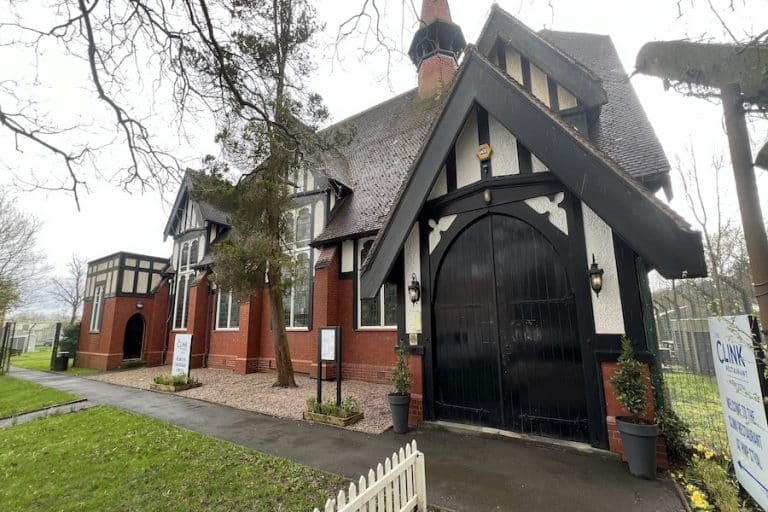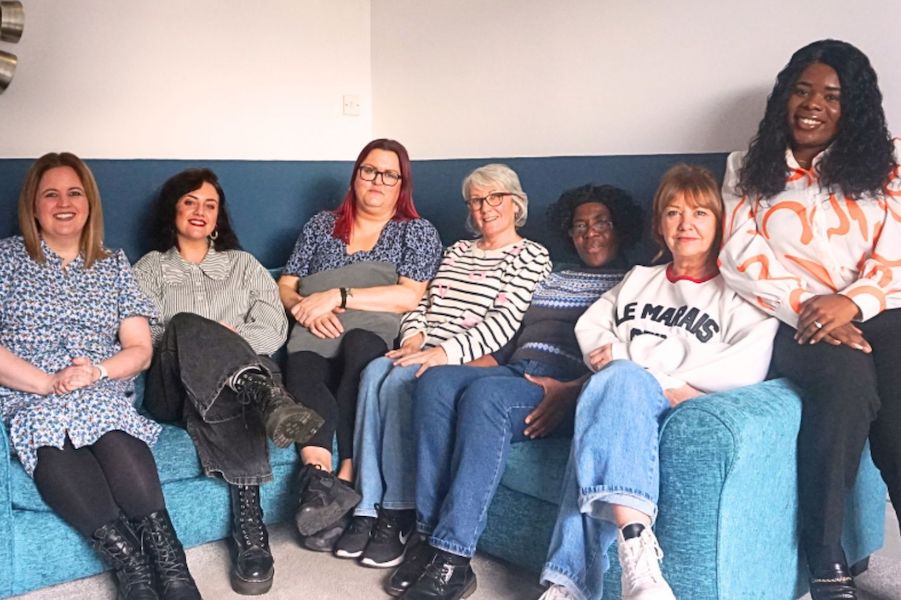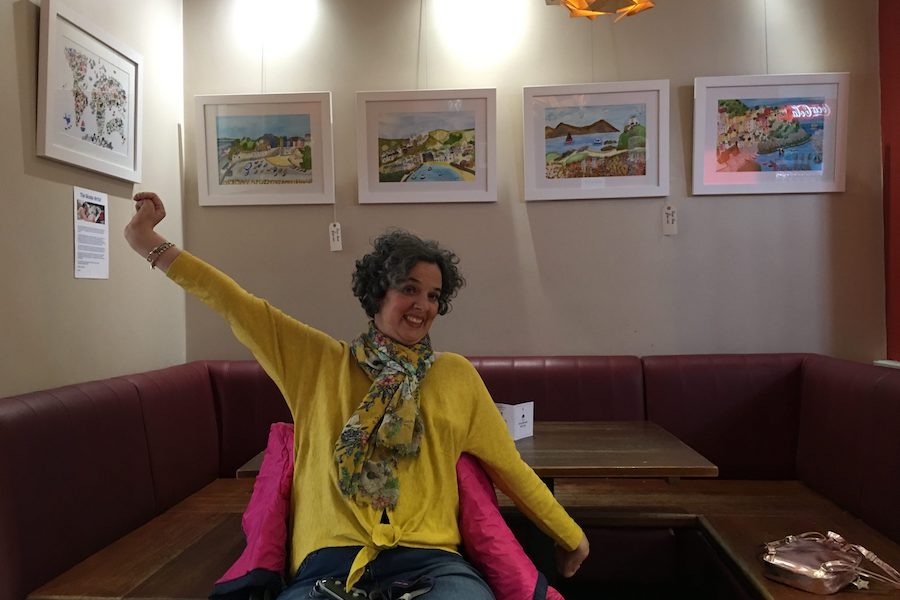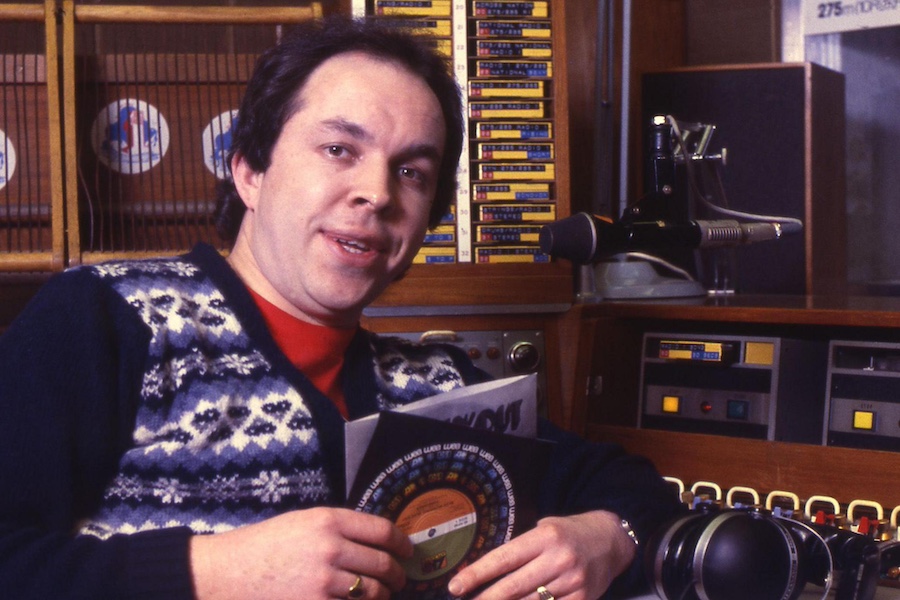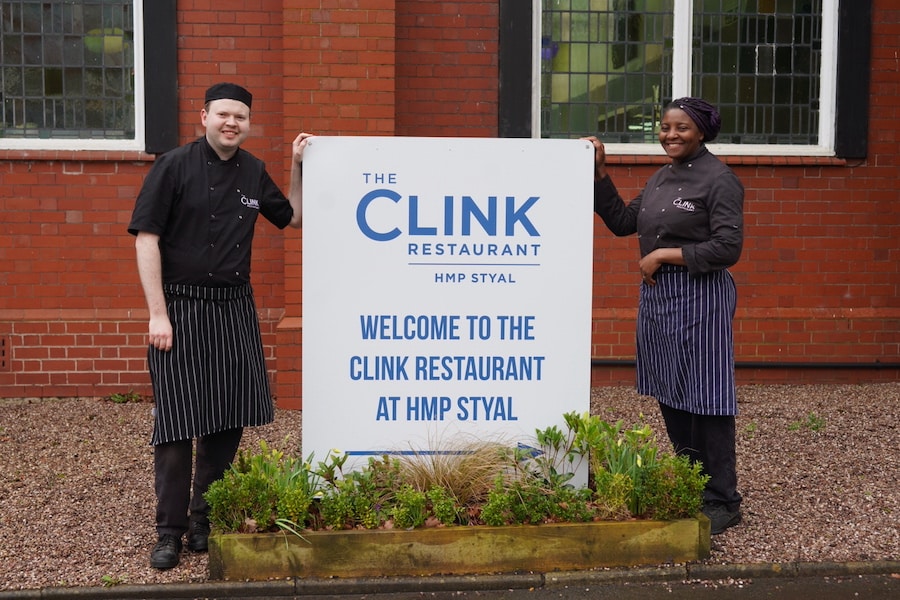Salford FC enjoy surprise padel training session before knocking Leeds out of the cup
- Written by Thom Bamford
- Last updated 2 years ago
- City of Salford, People, Salford City, Sport
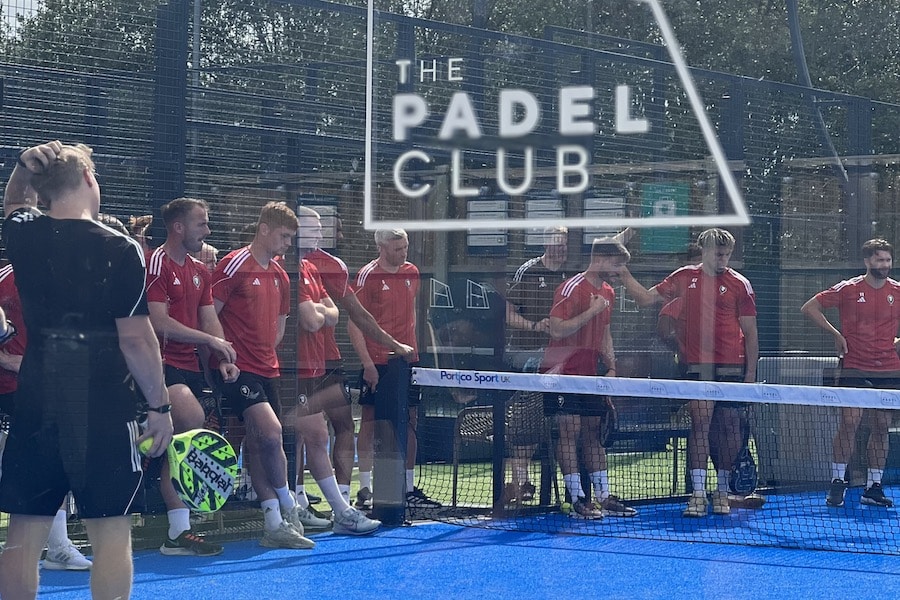
Salford FC had a very different training session earlier this week, ahead of their historic cup victory against Leeds this week.
League Two Salford stunned Championship big guns Leeds with a thrilling 9-8 penalty shoot-out victory after their EFL Cup clash ended 1-1 after 90 minutes.
And could it be, their midweek padel session was the secret to their cup success?
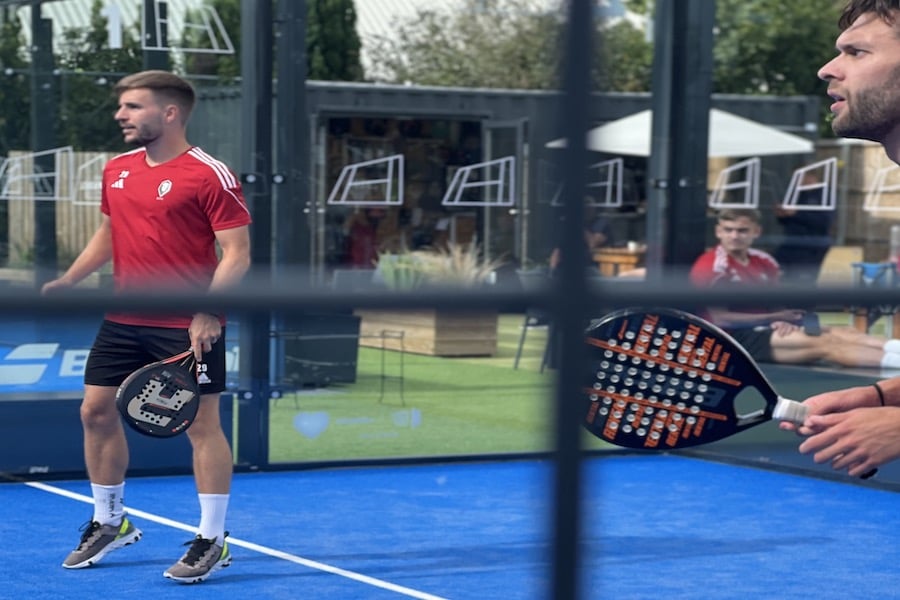
The team, known for their tenacity on the football pitch, ventured into uncharted territory at The Padel Club in Wilmslow, embracing a new dimension of training that seemed worlds away from the roaring crowds of the football stadium.
But for players of the sport, Padel has it’s clear advantages to any sportsperson.
It can improve: hand-eye coordination, reflexes, tactic thinking, footwork, fitness and much much more.
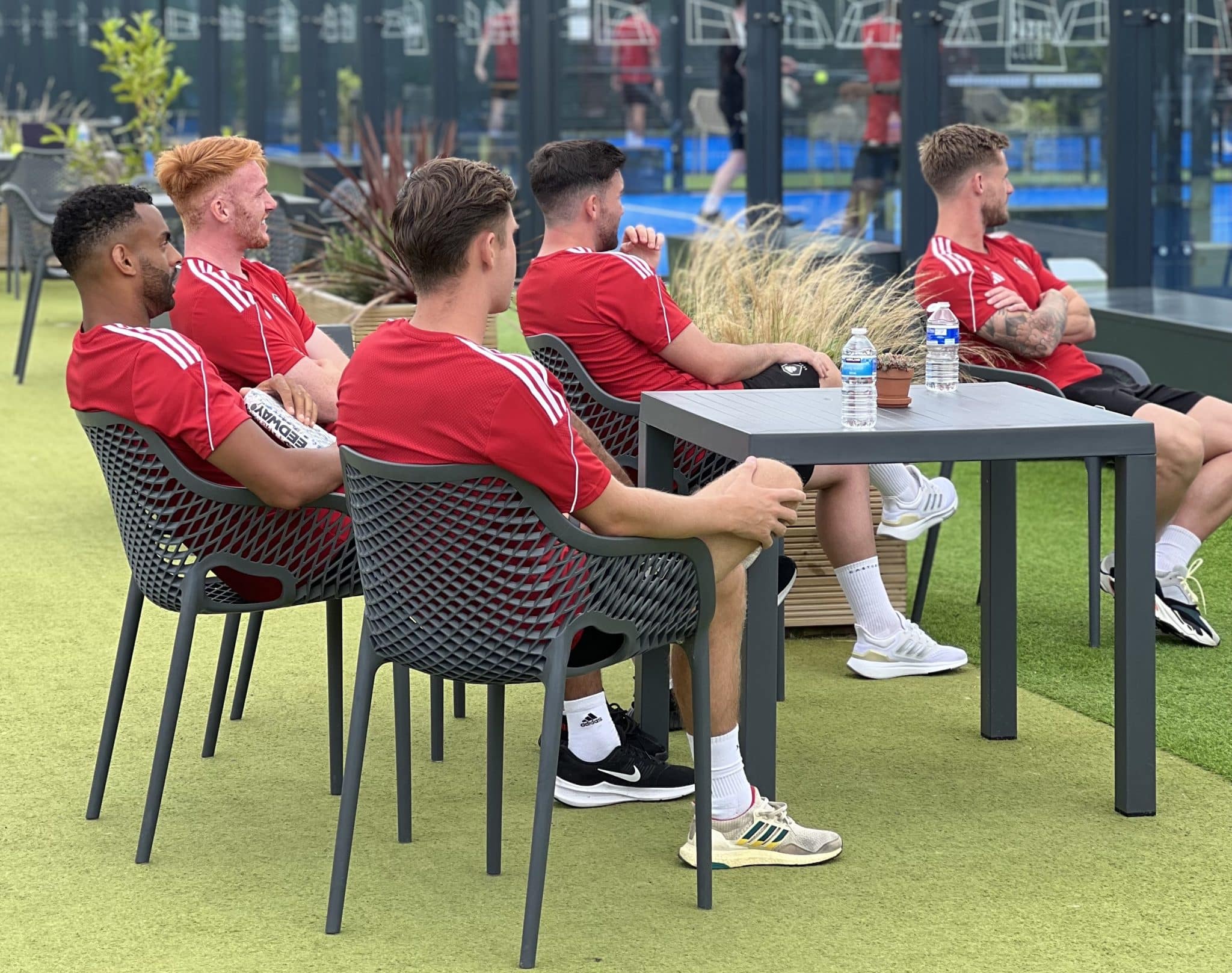
Speaking to I Love Manchester, Katy Leeson, Marketing for Salford City, said: “As a club, we are always looking at new ways to bring the players together to supplement their training schedule.
“Padel was the perfect fit, it allowed for a great day of exercise whilst bringing out the competitive nature the players have. I know a lot of the players will now become regulars as well.
“The Padel Club were the best hosts too, enabling the tournament to run smoothly after some top-level coaching in what is an incredible space.”
But let’s circle back to the heart of this story – Padel itself.
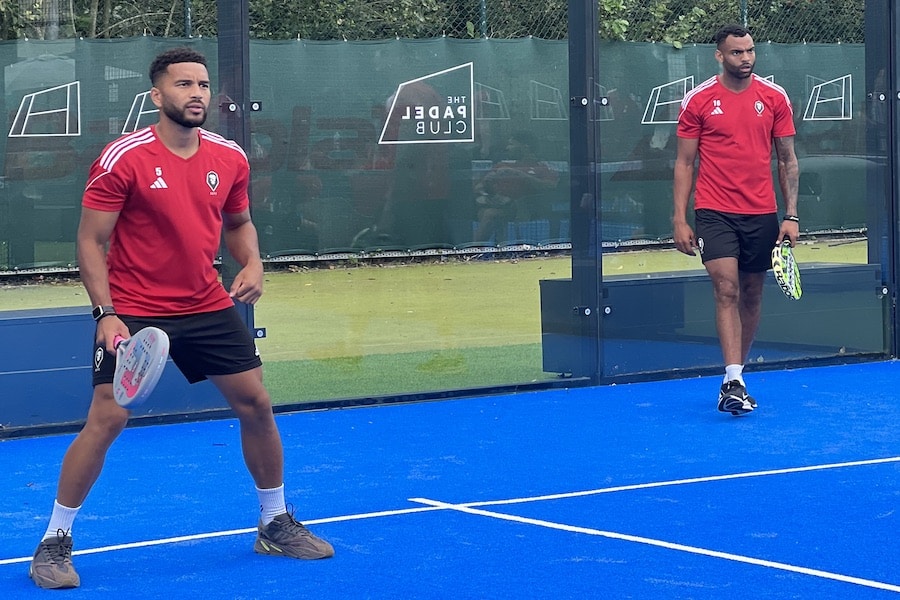
This innovative sport, a lovechild of tennis and squash, has captured the collective imagination of the UK populace, riding the wave of its inclusive nature and dynamic gameplay.
Emerging from its Mexican origins, Padel has found fertile ground in Britain, offering players the thrill of glass-walled courts, the strategy of a solid background, and the kinetic camaraderie of doubles play.
Combining elements of tennis and squash, Padel is played on a smaller, enclosed court with glass walls and a solid background.
Its origins can be traced back to the efforts of Enrique Corcuera, who aimed to create a more accessible version of tennis for his family. The sport’s simplicity, social nature, and faster-paced gameplay have contributed to its burgeoning popularity in the UK.
In an era where people seek engaging and inclusive recreational activities, Padel has emerged as a perfect fit.
Its shorter court dimensions and reliance on teamwork make it inviting for players of all skill levels and ages. The glass walls add an element of strategy and excitement, as players can use them to their advantage or to challenge opponents.
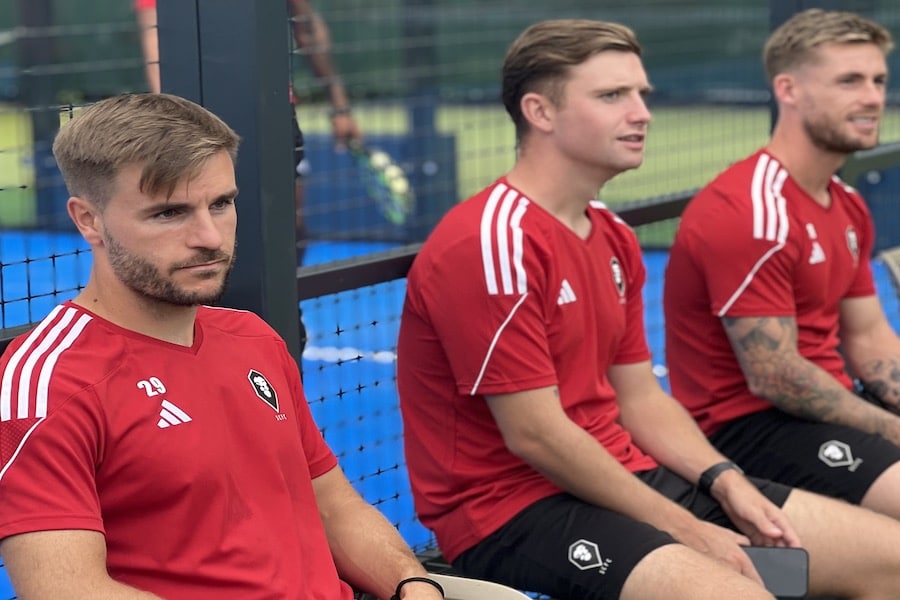
Padel’s fast-paced nature keeps participants active and entertained, while its social aspect encourages socialising and building connections, both on and off the court.
And building on the success of the Wilmslow site, the club are now looking to build a new high-spec site in Trafford City.
Pippa Nash, Head of Brand Marketing at The Padel Club, said “We were very proud to host the Salford City footballers and coaching team, at our Club.
“The atmosphere was competitive and high energy, all the players seemed to really enjoy taking on the new sport of Padel. Hopefully the team will play Padel more, coming back to The Padel Club and at our TraffordCity site in the future”.
The Padel Club have submitted plans to Trafford Council to build a high-specification Padel club, that will include 11 courts: 9 covered courts and two open-air courts.
Additionally, there will be a clubhouse and facilities, that will provide ‘a social space for players to connect and create a community, advocating well-being and interaction.’
The 1.5 acre development costs circa. £2m to build, will create 15 jobs specifically in the emerging sport and hopes to support further positive economic impact to the complex and surrounding catchment.
The Salford players, charged with the camaraderie and intensity of their Padel experience, transmuted that energy into a football triumph that will be talked about for years to come.
Midefielder Ossama Ashley, in describing his time at the Padel Club, remarked, “I really enjoyed my time at the paddle club, staff were friendly and made us feel welcome.
“Definitely something for me to get used to but I had loads of fun and would be something I recommend.”
As sports enthusiasts and sceptics alike chuckle over the whimsical prospect of a Padel-induced victory, one thing is irrefutable – Padel’s growing popularity in the UK is drawing together the threads of sports, camaraderie, and the thrill of the unexpected, creating a narrative that could only be conjured on the fields of play.
And whether it’s the strategic prowess of Padel or simply a twinkle of good fortune, the tale of Salford’s triumph is a testament to the magic woven into cup football.
Best of luck in the next round!
- This article was last updated 2 years ago.
- It was first published on 1 September 2023 and is subject to be updated from time to time. Please refresh or return to see the latest version.
Did we miss something? Let us know: press@ilovemanchester.com
Want to be the first to receive all the latest news stories, what’s on and events from the heart of Manchester? Sign up here.
Manchester is a successful city, but many people suffer. I Love Manchester helps raise awareness and funds to help improve the lives and prospects of people across Greater Manchester – and we can’t do it without your help. So please support us with what you can so we can continue to spread the love. Thank you in advance!
An email you’ll love. Subscribe to our newsletter to get the latest news stories delivered direct to your inbox.
Got a story worth sharing?
What’s the story? We are all ears when it comes to positive news and inspiring stories. You can send story ideas to press@ilovemanchester.com
While we can’t guarantee to publish everything, we will always consider any enquiry or idea that promotes:
- Independent new openings
- Human interest
- Not-for-profit organisations
- Community Interest Companies (CiCs) and projects
- Charities and charitable initiatives
- Affordability and offers saving people over 20%
For anything else, don’t hesitate to get in touch with us about advertorials (from £350+VAT) and advertising opportunities: advertise@ilovemanchester.com
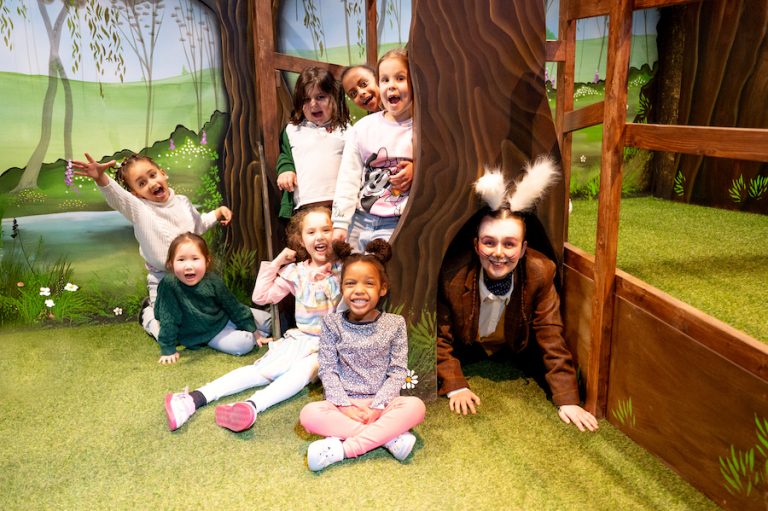
Head down the rabbit hole for Adventures in Wonderland with Z-arts
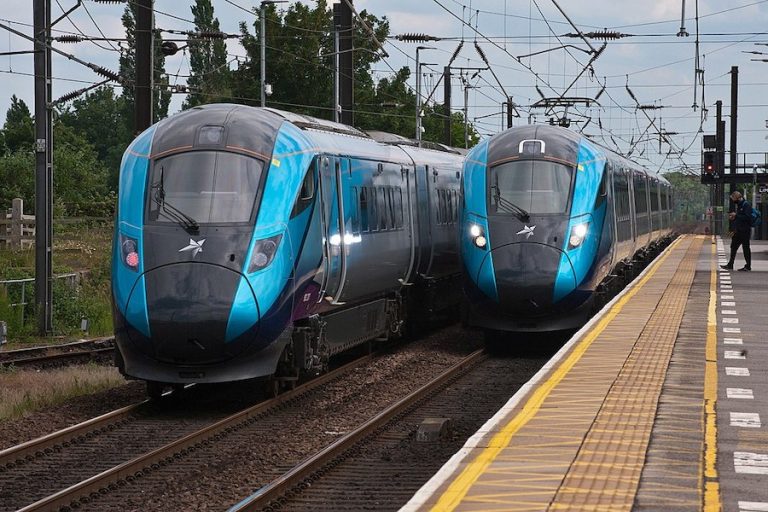
Major rail investment set to transform Manchester-Leeds commutes

“His presence will be deeply missed” Children’s hospice bids farewell to their visionary CEO

Has Gordon Ramsay created Manchester’s ultimate bottomless brunch?

The Clink celebrates ten years of empowerment and second chances
